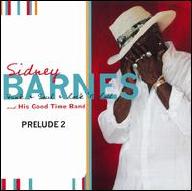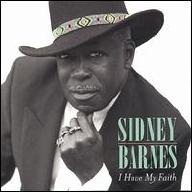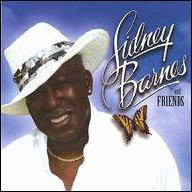Born Sidney Alexander Barnes in Welch, WV, he crossed paths in high school with Marvin Gaye, Herb Feemster (of Peaches Herb), and Van McCoy, among other future music stars; passing through the lineups of various bands before he hooked up with the Serenaders, a group that held a lot of promise that somehow never got fulfilled, despite a lion's share of talent in their ranks. Between 1961 and 1963, Barnes cut one single of his own on the Newark, NJ-based Gemini label and participated in three single releases by the Serenaders for various labels (including Motown), before the group decided to split up so the members could concentrate on their individual careers. Barnes passed through associations with Juggy Murray's Sue Records label, writing songs for Billy Prophet and Inez and Charles Foxx, and, at the suggestion of Jeff Barry, recorded solo for George Goldner's Red Bird label. His first two releases for Red Bird, You'll Always Be in Style and I Hurt on the Other Side, both later became huge Northern soul hits in England. His biggest success with the label, however, may have been as a songwriter, when the Shangri-Las recorded his Long Live Our Love. By 1967, he had become part of the orbit of Marshall Chess' upstart Cadet Records; within the Chess Records organization as a part of Rotary Connection; and he also saw one of his songs, Herbert Harper's Free Press News, covered by no less a figure than Muddy Waters on the Electric Mud album. At some point, Barnes also recorded a single under the pseudonym "Johnny B. Goode." He'd also begun producing other artists' work, including the pop-soul outfit the Flirtations, who had evolved out of an earlier group with which he'd worked, the Gypsies. He also released one single under his own name, Baloney b/w Old Times, on the Chess label in 1970, and cut a solo single for his own Parachute label (Hold On I'm Coming) in 1978; but it was principally in association with other artists, as a songwriter, backup singer, and producer, that Barnes made his impact on music over the next 20 years.
By the 1970s, Barnes was riding high on the soul, disco, and funk booms, working with George Clinton, Parliament, Funkadelic, and Deniece Williams, among others, while continuing to record with Riperton. His career momentum continued into the 1980s, but slowed down in the decade that followed. By the 1990s, however, he had found his recordings and his songs embraced in England by the Northern soul boom. In March of 2001, 44 years after he started in the business, Sidney Barnes made his first visit to England as a concert artist and was accorded a hero's welcome, worthy of any Motown, Chess, or Red Bird star. ~ Bruce Eder, Rovi














